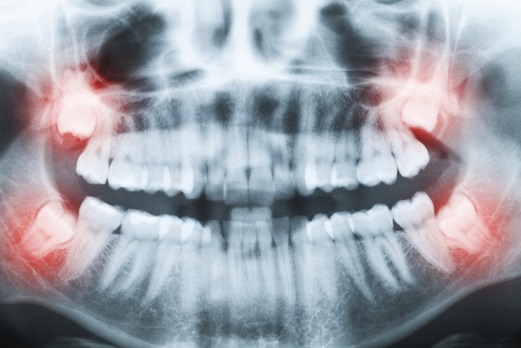Sometimes it’s said there’s not enough room in the jaw for all the teeth, and that’s true.
Wisdom teeth, also known as third molars, typically emerge between the ages of 18 and 25. However, sometimes they don’t erupt at all. Among all the permanent teeth that appear in the jaw, they are the last to emerge.
Wisdom teeth are molars, commonly referred to as “eights” in colloquial language. This is logical because, in a series of eight teeth in the jaw, these teeth are the last. Wisdom teeth develop and grow on all four sides of the jawbones. Unfortunately, these teeth often cause problems because they can form crookedly.
Wisdom teeth grow to frame the jaw, and their function is to maintain the shape of the jaw. They are not often used for chewing, although they can replace missing second molars if they descend properly.
Impacted wisdom teeth
A common question is whether everyone will have problems with their wisdom teeth. Often, wisdom teeth can be perfectly normal. With proper care, wisdom teeth can last a lifetime.
If they don’t erupt normally, it’s better to remove them. This is when they are referred to as impacted wisdom teeth. These are teeth that do not fully erupt because there isn’t enough space in the jaw. Since they are the last to erupt, there is often insufficient room for them, so they only partially appear or are not visible at all.




